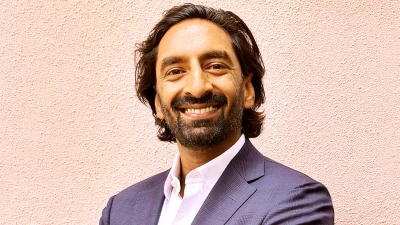In search of a better beta


Joe Bracken and Robert Chapman find out whether market capitalisation is the most efficient form of beta.
The investment management industry is centred on the idea of market capitalisation (‘market-cap’) weighted portfolios being the most efficient form of beta.
Until the 1990s, the very idea of market-cap weighted portfolios being superior to all other weighting schemes was considered investment dogma and this led to over 90 per cent of all global equity portfolios being managed to a market-cap weighted benchmark.
However, in the 1990s, new thinking began to suggest that market capitalisation weighted portfolios were not the most efficient.
Insights into the problems of market-cap weighted benchmarks led to a plethora of new weighting schemes that sought to improve upon market-cap weighted indices.
Most alternative weighting schemes have various advantages and disadvantages compared to the standard market-cap benchmark. However, equally weighted portfolio construction appears to be the most attractive alternative.
Its simplicity, robustness and, importantly, powerful diversification features provide a platform to build better beta.
In finance, diversification is probably the only “free lunch” in markets. Diversification provides investors with a better return per unit of risk by diversifying away as much risk as possible.
Typically, market-cap weighted benchmarks are not well diversified. For example, the MSCI World Index has barely changed its composition in over thirty years, notwithstanding the significant global economic changes seen over that period.
It has been dominated by just three countries – the US, Japan and the UK accounts for around 70 to 75 per cent of the total index – and the rest of the world (comprising 20 other developed markets) accounts for only a quarter of the index yet it remains the performance benchmark for a significant number of global equity investors.
Why does this matter?
Better diversification normally translates into better risk-adjusted returns.
Research indicates poor diversification in existing global equities benchmark.
Can we prove that better diversification results in better risk adjusted returns for investors? To answer this question Tempo performed an analysis using an efficient frontier. An “efficient frontier” uses the historical returns on all markets in the MSCI World to create thefrontier that represents the optimal allocation of capital at each point on the risk spectrum.
Tempo then redesigned the MSCI World to give each country an equal weight within the benchmark. This meant that the equally weighted MSCI World was more diversified than a market-cap weighted one as its risk was spread more evenly among the different constituents.
This better diversified portfolio should, in theory, generate a better return per unit of risk for investors.
That proves to be the case with an equally weighted MSCI World being closer to the efficient frontier than a market-cap weighted one, suggesting that investors are getting higher returns for each unit of risk they accept.
From this analysis, it is clear that a diversified portfolio can outperform a more concentrated one over time and that diversification really is one of the few (perhaps the only?) “free lunch” in finance.
While many portfolio construction methodologies are less concentrated than the market-cap weighted MSCI World, an equally weighted approach is one of the most diversified, offering investors the potential of better returns per unit of risk.
In discussing different weighting schemes’ performance – the ability to capture the “best” beta – is frequently paramount in investors’ minds.
An equally weighted approach outperforms a market cap weighted one
Tempo conducted research at an aggregate (i.e. country), equity index level that demonstrates the superiority of an equally weighted approach over market-cap weighting schemes.
As part of a Tempo research programme an equally weighted portfolio of MSCI World countries was constructed and its performance tracked versus the market-cap weighted MSCI World.
As Chart 1 indicates an equally weighted, equity-index level portfolio soundly beat a market-cap weighted one by approx. 1.5 per cent per annum over time. It did this at slightly more risk than the market-cap weighted benchmark but the extra return more than compensated investors for the additional risk (as shown by the higher return/risk ratio in Table 1).
Joe Bracken and Robert Chapman are principals at Tempo Asset Management.
Recommended for you
While fund managers are eager to launch active ETFs to appeal to advisers, EY has found two-thirds of ETF flows are going into extremely cheap passive offerings with an expense ratio of less than 25 basis points.
Private markets may be the hot topic of the day but two financial advisers have shared the red flags to consider and why advisers shouldn’t be tempted to invest solely in the pursuit of higher returns.
The rise of private credit funds is giving research houses cause for concern about their viability for retail and wholesale investors and necessitating changes to their research process.
The rebranding of the AMP advice division to Akumin brings to an end a 176-year history for the firm and provides a fresh start for advisers under Entireti.














